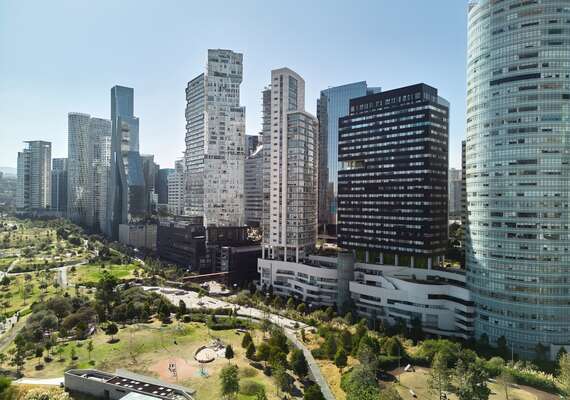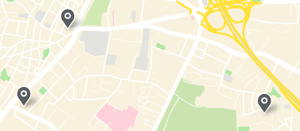Mexico City City Guide

| Country: | Mexico |
| Known Names: | CDMX, Ciudad de México |
| Language: | Spanish |
| Population: | Approx. 9.2 million |
| Religion: | Christianity (most common) |
| Area Code: | +52 55 |
| Currency: | Mexican Peso (MXN) |
| Time Zone: | Central Standard Time (CST) - UTC/GMT -6 hours |
| Visa: | |
| Consulate: |
General Information / Guide
Mexico City, the capital of Mexico, is one of the largest and most vibrant cities in the world. Located in the Valley of Mexico at an altitude of 2,240 meters, it is renowned for its rich history, blending Aztec, colonial, and modern influences. Famous for its impressive architecture, world-class museums, and delicious cuisine, including tacos and street food, Mexico City offers a dynamic urban experience. With its lively arts scene, bustling markets, and historic landmarks like the Zócalo and Teotihuacan, it is a must-visit destination for travelers seeking cultural enrichment and adventure.
Climate / Weather / When to Go
Mexico City experiences a subtropical highland climate, with mild, dry winters and warm, wet summers. The best time to visit is from March to May when the weather is warm and before the rainy season starts. Summers (June to September) can be wet, with temperatures in the 70s (20-25°C) and frequent afternoon showers. Winters (December to February) are mild, with temperatures ranging from the mid-40s to mid-60s (7-20°C).
How to Get There
Mexico City is served by Benito Juárez International Airport, located about 5 miles (8 kilometers) east of downtown. The airport offers various transportation options, including the Metro, airport buses, taxis, rideshares, and rental cars, providing easy access to the city. Mexico City is also well-connected by major highways and bus services to other parts of Mexico.
Food / Restaurants / What to Eat and Drink
Mexico City's culinary scene is renowned for its vibrant flavors and traditional dishes. Iconic foods include tacos al pastor, tamales, and churros. For fine dining, try restaurants like Pujol and Quintonil. For a more casual experience, explore neighborhoods like Condesa and Roma for trendy cafes and street food vendors. Don't miss the Mercado de San Juan for a variety of fresh produce and exotic ingredients.
Important Places / Places to Visit
- Zócalo: The main square of Mexico City, home to the Metropolitan Cathedral, the National Palace, and numerous cultural events.
- Chapultepec Park: One of the largest city parks in the world, featuring the Chapultepec Castle, museums, a zoo, and beautiful green spaces.
- Museo Frida Kahlo: Also known as the Blue House, this museum is dedicated to the life and work of the iconic artist Frida Kahlo.
- Templo Mayor: An archaeological site and museum located in the historic center, showcasing the remains of the ancient Aztec temple.
- Palacio de Bellas Artes: A stunning cultural center hosting art exhibitions, concerts, and performances, known for its beautiful Art Nouveau and Art Deco architecture.
- National Museum of Anthropology: One of the most important museums in Mexico, featuring extensive exhibits on the country's pre-Columbian heritage.
- Coyoacán: A charming historic neighborhood known for its cobblestone streets, vibrant markets, and the Leon Trotsky Museum.
- Xochimilco: Famous for its canals and colorful trajinera boats, offering a unique and scenic experience in the southern part of the city.
What to Do
Explore the historic center of Mexico City, including Zócalo, Metropolitan Cathedral, and Templo Mayor. Visit the impressive Chapultepec Park, home to the Chapultepec Castle and several museums. Enjoy the vibrant arts scene at the Palacio de Bellas Artes and the colorful murals of Diego Rivera. Stroll through the charming streets of Coyoacán and visit the Frida Kahlo Museum. Take a boat ride along the canals of Xochimilco, a UNESCO World Heritage Site. For shopping, explore the trendy neighborhoods of Condesa and Roma, filled with boutiques and cafes.
Nightlife / Bars / Entertainment
Mexico City's nightlife is as diverse as its culture, with options ranging from traditional cantinas to modern clubs. For live music, head to El Plaza Condesa or Foro Indie Rocks. The neighborhoods of Roma and Condesa are known for their hip bars and eclectic clubs. For a unique experience, visit the speakeasy Hanky Panky Cocktail Bar or the themed La Clandestina. Don’t miss the vibrant nightlife at Zona Rosa, famous for its diverse entertainment options.
Shopping / What to Buy
Mexico City offers a diverse shopping experience, with options ranging from luxury boutiques to bustling markets. Polanco's Avenida Presidente Masaryk is home to high-end stores and designer brands. For unique, locally made goods, visit the markets in Coyoacán and La Roma, or explore Mercado de Artesanías La Ciudadela. Don't forget to pick up some Mexico City-themed souvenirs, such as Talavera pottery, textiles, and handmade jewelry.
Festivals/ Events
February: Carnaval de la Ciudad de México - A vibrant carnival with parades, music, and dancing.
March: Festival del Centro Histórico - A celebration of Mexico City's historic center with concerts, theatre, and cultural events.
May: Cinco de Mayo - Commemorative events and parades marking the Battle of Puebla.
June: Feria de las Culturas Amigas - An international cultural festival showcasing food, music, and crafts from around the world.
September: Grito de Dolores - Independence Day celebrations with fireworks, parades, and performances.
November: Día de los Muertos - Day of the Dead celebrations with altars, parades, and traditional dances.
Holidays / Festivals / Important Days
1 January: New Year’s Day - Celebrations and public events mark the beginning of the new year.
5 May: Cinco de Mayo - Commemorating the Battle of Puebla with parades and festivities.
16 September: Independence Day - Celebrating Mexico’s independence from Spain with parades, fireworks, and public festivities.
2 November: Día de los Muertos - Day of the Dead celebrations with altars, parades, and traditional dances.
12 December: Day of the Virgin of Guadalupe - Religious ceremonies and pilgrimages honoring the Virgin of Guadalupe.
25 December: Christmas Day - A major holiday with religious services, family gatherings, and festive decorations.
Things to Pay Attention to / Important Information
Mexico City’s weather is generally mild, but air quality can vary, so be prepared if you have respiratory concerns. Public transportation, including the metro and buses, is extensive and efficient, making it easy to navigate the city without a car. Be mindful of your belongings in crowded areas, such as markets and tourist attractions, and stay aware of your surroundings. Explore beyond the central areas to experience the diverse neighborhoods and rich cultural heritage that define Mexico City.
Transportation
Mexico City has a robust public transportation system, including buses, the Metro, and the Metrobús, offering convenient access to most areas. The Ecobici bike-sharing program provides rental bikes throughout the city. Taxis, rideshares, and rental cars are also widely available, but traffic can be heavy, and parking in downtown areas is often difficult and expensive.
